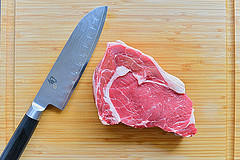Eggs are essential ingredients in a number of dishes, but they can also be dangerous to your health if handled incorrectly. To reduce your risk of salmonella and other diseases that come from eggs, follow these important guidelines.
- Shop smart. The first step toward healthy egg care is inspecting your eggs in the grocery store for cracks or dirty appearance. Also be sure to only purchase eggs that are stored in a refrigerated case.
- Store them properly. Eggs should be stored in a clean spot in the refrigerator at 40°F or lower.
- Cook them thoroughly. If you’re preparing scrambled eggs or another egg dish, be sure that both the yolk and white are firm and that the egg reaches a temperature of 160°F. Never eat batter or dough containing raw eggs before it's cooked or baked.
- Store egg dishes properly. Dishes made of only eggs cannot be stored, so be sure to eat them immediately after cooking. If you prepare something else that contains eggs, always keep it refrigerated.
- Keep it clean. Even if you use the utmost care when handling eggs, it’s essential to wash your hands, cooking and prep surfaces, and any utensils thoroughly to remove any traces of eggs. Wash hands and utensils with hot, soapy water, and scrub kitchen countertops with bleach or another germ-killing product.
Playing It Safe With Eggs [FDA]
Eggs & Food Safety [Incredible Egg]
Tips to Reduce Your Risk of Salmonella from Eggs [CDC]


 Equal Housing Opportunity
Equal Housing Opportunity